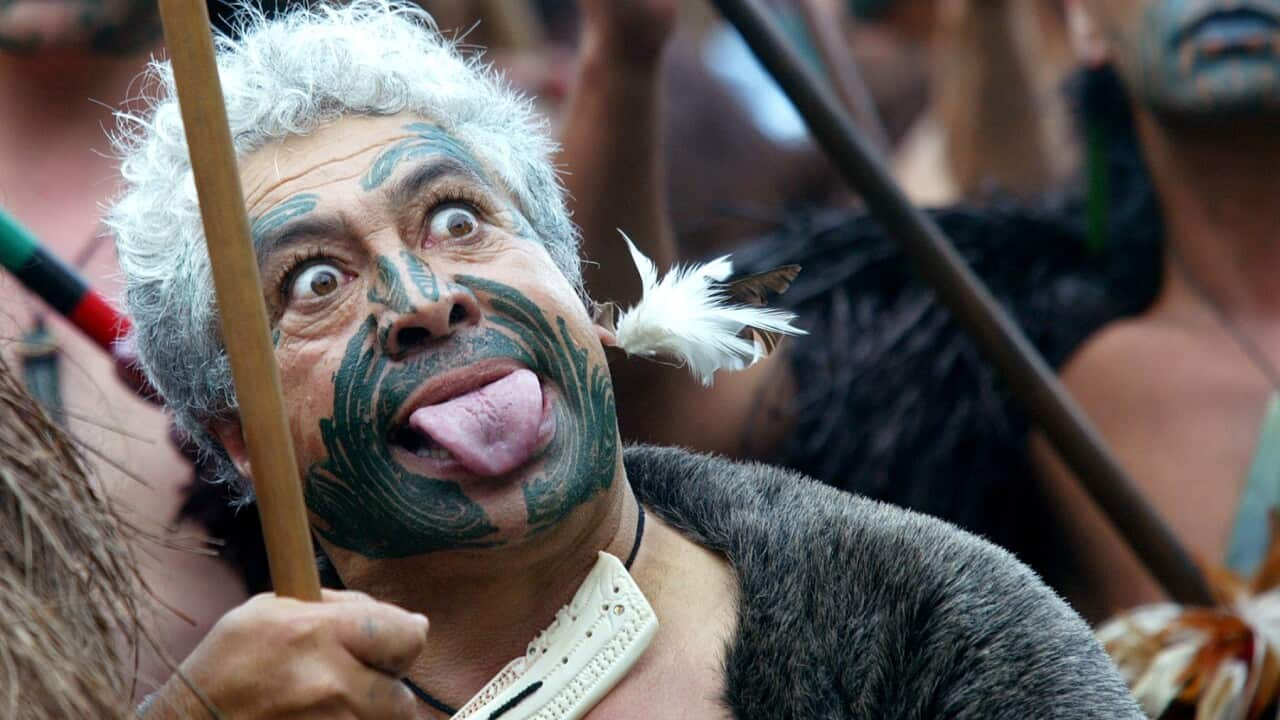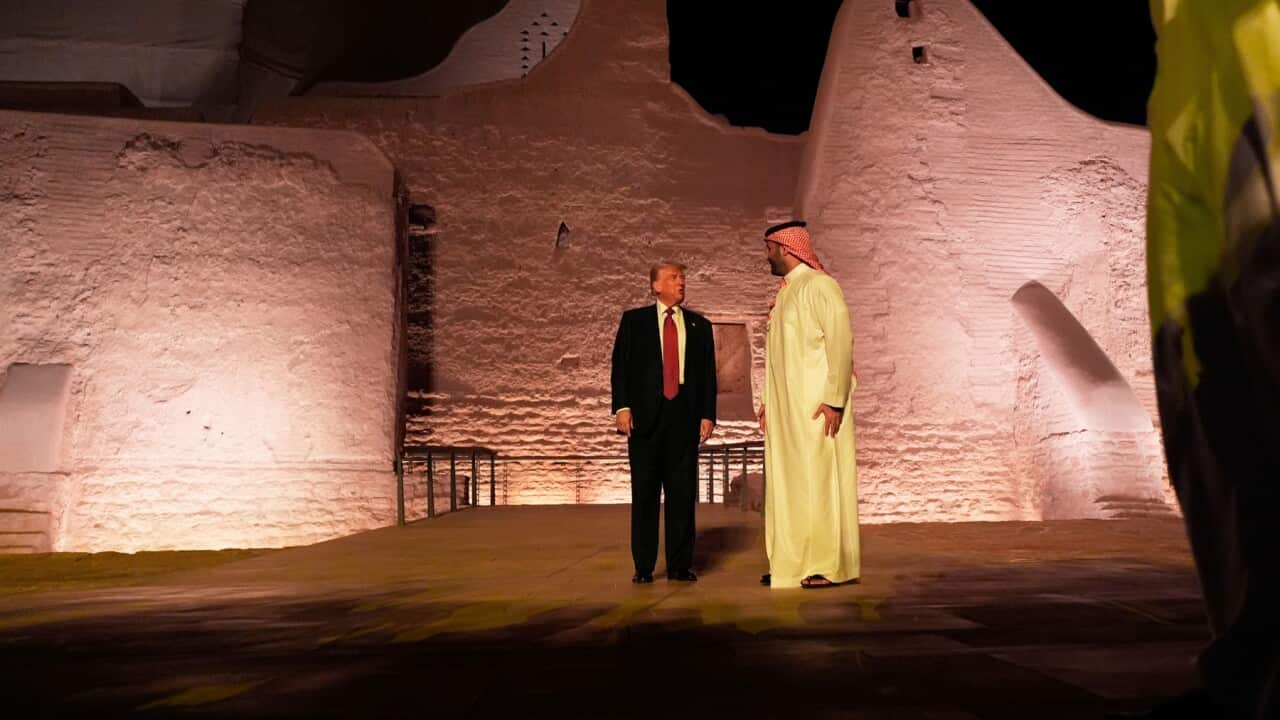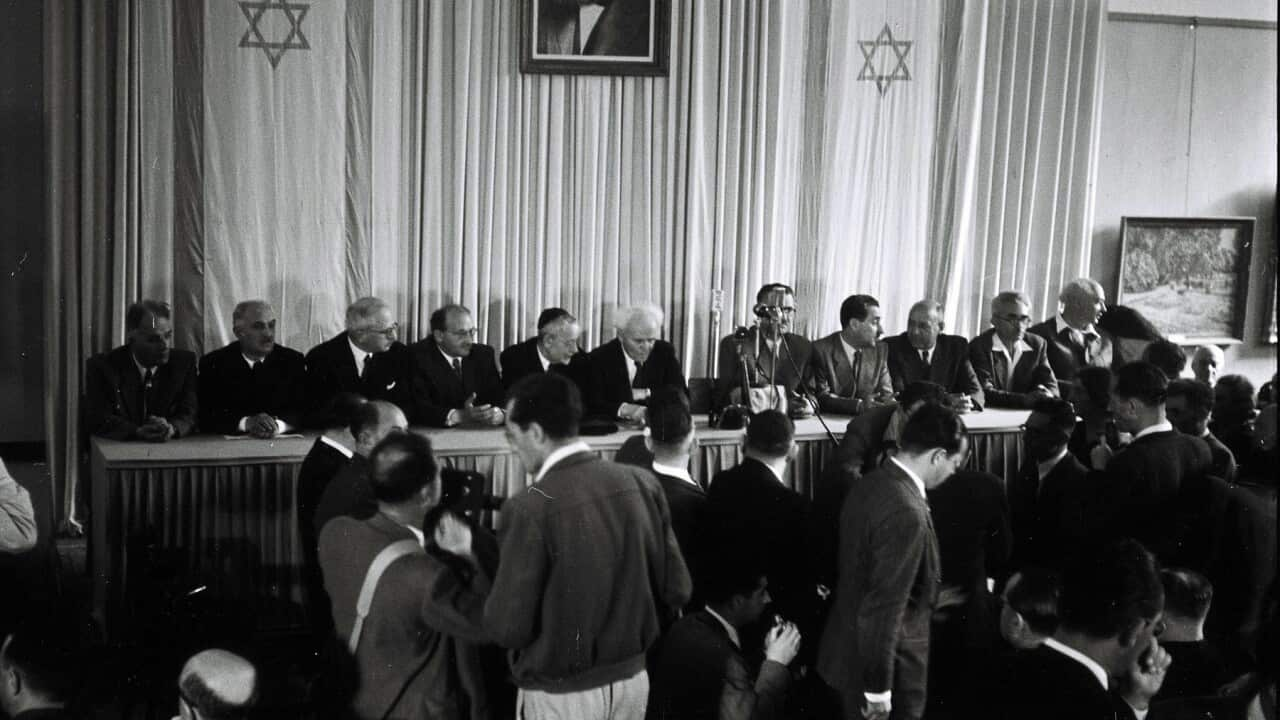TRANSCRIPT:
These are participants in what's known as the "hikoi mo te Tiriti", a group of a few hundred protesters who began walking from the northernmost tip of New Zealand 10 days ago.
They've now reached the country's capital of Wellington, with the group now numbering in the tens of thousands.
"It's basically just about solidarity and unity today."
"If this is the people speaking.. then listen to us speaking. They have to. Look at how many people there are here, they have to."
The demonstrators say they're protesting potential changes to the Treaty of Waitangi, an agreement made in 1840 between the Maori Indigenous peoples of New Zealand, and the Crown.
"This is what our parents fought for, this is what our grandparents fought for to maintain our cultural integrity."
"There's been no consultation with us who are meant to be the treaty partners of it and there's no way that bill should be going through without even some korero (conversation)."
New Zealand M-Ps briefly walked outside of parliament to witness the conclusion of the march, including the leader of the ACT party and architect of the controversial bill, David Seymour.
Protesters who spotted the politician pledged to keep the political action going until the proposed bill is scrapped.
"We are the sovereign and Aotearoa is our kingdom. We say to David Seymour that we'll see you next Tuesday."
Mr Seymour's ACT is a minor right-wing party that is part of the ruling coalition government.
The introduction of the bill was part of ACT's coalition agreement, with the National Party, led by prime minister Christopher Luxon.
The Prime Minister has already ruled out supporting the bill, meaning it won't pass.
And its first reading in parliament last week was met with dissent by some MPs - including the youngest in the house who ripped up the bill and led her colleagues in a haka.
But that hasn't stopped the protests.
That fiery young Māori Party MP Hana-Rāwhiti Maipi-Clark was one of the leading spokespeople at the Hikoi.
"We will never ever have to decide who can mess with our rights and our sovereignty as a indigenous people here in Aotearoa. We are the king makers we are the sovereign people of this land and the world is watching us here."
The bill has become a flashpoint for race relations in New Zealand, and is seen as an agenda-setting moment for the future of their relationship with their First Peoples.
It's also caused political headaches for the Prime Minister, who stands accused of fuelling disunity by agreeing to allow the law to reach this stage.
David Seymour himself has defended the proposal, telling Parliament last week that the bill is essential in a modern New Zealand to ensure equal rights for all citizens.
"The division that you are seeing was not caused by this bill. It's been built up over decades during which New Zealanders have come to regard themselves as based on ancestry or one side of a partnership, instead of New Zealanders. And what's worse, successive governments have encouraged that division."
Opponents of the bill say it strips Maori of their central place in their homeland.
Ella Henry, a Professor of Māori Entrepreneurship at Auckland University of Technology, says the political movement behind this bill threatens to undo the gains New Zealand has made in diplomacy with their Indigenous peoples.
"Our concern about this bill not only is the way that it is trying to undermine some of that legislation by using very libertarian arguments that somehow there is inequality based on race and ethnicity, is hugely problematic. So we have gathered in our tens of thousands, not just Māori, but others who support an inclusive, diverse, equal partnership that our country has been a world leader in pioneering. Those are the people who are marching."













